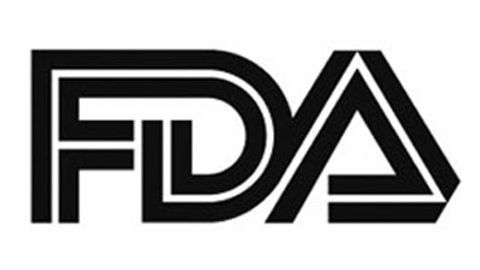FDA Grants Breakthrough Therapy Designation to Toripalimab Combination in Nasopharyngeal Carcinoma
The FDA has granted breakthrough therapy designation to toripalimab in combination with gemcitabine and cisplatin for the first-line treatment of recurrent or metastatic nasopharyngeal carcinoma.

The FDA has granted breakthrough therapy designation to toripalimab in combination with gemcitabine and cisplatin for the first-line treatment of recurrent or metastatic nasopharyngeal carcinoma, according to a press release issued by Shanghai Junshi Biosciences Co., Ltd.
This BTD follows a prior BTD granted to toripalimab as monotherapy for patients with recurrent or metastatic nasopharyngeal carcinoma with disease progression on or after platinum-containing chemotherapy in September 2020.
“We are pleased to have received Breakthrough Therapy designation for our novel PD-1 blocking antibody, toripalimab, for nasopharyngeal carcinoma, which is an aggressive cancer with no immuno-oncology treatment options approved in the United States,” said Patricia Keegan, MD, chief medical officer of Junshi Biosciences, in a press release. “We look forward to working closely with the FDA during the BLA review process and with our partner, Coherus, to bring toripalimab to nasopharyngeal carcinoma patients in the U.S., if approved.”
Treatment with toripalimab in combination with gemcitabine and cisplatin was investigated in the phase 3 JUPITER-02 trial (NCT03581786), which was recently completed after showing that the combination significantly improved progression-free survival (PFS) in the frontline treatment of patients with recurrent or metastatic nasopharyngeal carcinoma.
The median PFS observed was 11.7 months (95% CI, 11.0–not evaluable [NE]) per blinded independent review committee (BIRC) assessment compared with 8.0 months (95% CI, 7.0-9.5) with chemotherapy alone (stratified HR, 0.52; 95% CI, 0.36-0.74; P = .0003), according to data presented during a press briefing ahead of the 2021 ASCO Annual Meeting.
The combination also led to a median overall survival (OS) that was NE in both arms (stratified HR, 0.603; 95% CI, 0.364-0.997; P = .0462).
At 1 year, PFS rates in the toripalimab and control arms were 49.4% (95% CI, 36.4%-61.1%) compared with 27.9% (95% CI, 18.0%-38.8%), respectively.
The 1-year OS rate observed in the toripalimab arm was 91.6% (95% CI, 85.6%-95.1%) compared with 87.1% (95% CI, 80.4%-91.7%) with chemotherapy alone. The OS rate at 2-years was 77.8% (95% CI, 68.0%-85.0%) with the toripalimab combination versus 63.3% (95% CI, 49.8%-74.1%) with chemotherapy.
In terms of safety, any-grade adverse events (AEs) occurred in 100% of patients in the study, and grade 3 or higher AEs occurred in 89.0% versus 89.5%, respectively. The most frequently reported grade 3 or higher AEs included leukopenia (61.6% vs 58.0%), neutropenia (57.5% vs 63.6%), and anemia (47.3% vs 39.9%).
JUPITER-02 trial was a global, double-blind, placebo-controlled study. Patients were eligible for enrollment given they were between the ages of 18 and 75 years old and had primary or metastatic nasopharyngeal carcinoma or recurrent disease following curative-intent treatment. Patients were also required to be treatment naïve for recurrent or metastatic disease, have an ECOG performance status of 0 or 1, and have measurable disease per RECIST v1.1 criteria.
The study included 289 patients with recurrent or metastatic nasopharyngeal carcinoma who were randomized 1:1 to receive toripalimab at 240 mg plus GP every 3 weeks for 6 treatment cycles followed by toripalimab maintenance at 240 mg every 3 weeks, (n = 146) or chemotherapy combined with placebo every 3 weeks for 6 cycles followed by placebo maintenance every 3 weeks (n = 143). These patients were evaluated for the primary end point of PFS by BIRC and per RECIST v1.1 as well as the secondary end points of PFS per investigator assessment, ORR, DOR, disease control rate, and OS.
Reference:
1. Junshi Biosciences and Coherus announce U.S. FDA breakthrough therapy designation granted for toripalimab for 1st line treatment of nasopharyngeal carcinoma. News release. Junshi Biosciences and Coherus. August 12, 2021. Accessed August 12, 2021.
2. Xu R-H, Mai H-Q, Chen Q-Y, et al. JUPITER-02: the randomized, double-blind phase 3 study of toripalimab or placebo plus cisplatin and gemcitabine as first-line treatment for recurrent or metastatic nasopharyngeal carcinoma (NPC). J Clin Oncol. 2021;39(suppl 15; abstr LBA2).
Neoadjuvant Therapy Could Improve Outcomes for Nasal and Paranasal Sinus Cancer
September 17th 2024Neoadjuvant chemotherapy prior to surgery and postoperative radiation therapy could improve organ preservation in patients with T3 and T4a nasal and paranasal sinus squamous cell carcinoma.
Read More